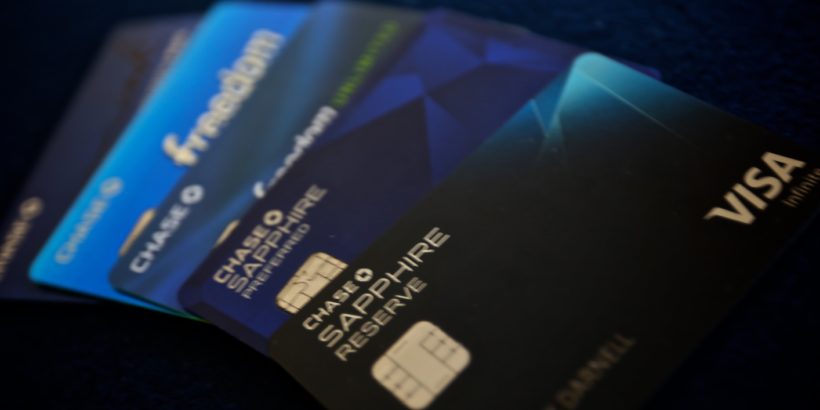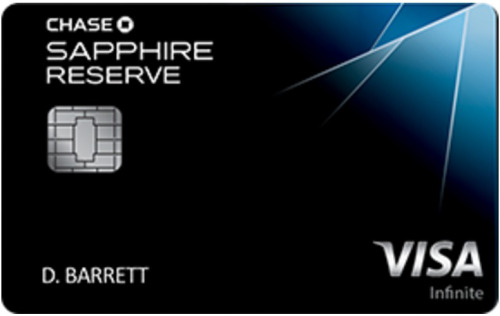It’s almost been one year since the release of the Chase Sapphire Reserve and inevitably that means a lot of consumers are going to need to decide if they should cancel their Chase Sapphire Reserve credit card or hold on to it pay that $550 annual fee. Here’s a look at some things you should consider if you find yourself in that boat.
Update: the annual fee has been increased to $550
Your options
You have the following options to choose from:
- Pay the annual fee
- Downgrade to Chase Sapphire Preferred
- Downgrade to Freedom or other no annual fee card like the “regular” Sapphire
- Cancel your card
Pay the annual fee
The annual fee for the Sapphire Reserve is $550 and it will come due when you’ve had your card for one calendar year. When your annual fee finally hits your statement, you should try to call Chase to inquire about retention offers. These are offers given to you in the form of points or statement credits that help to offset the annual fee. Chase is notoriously stingy with these but we haven’t seen how open they are to retaining their Sapphire Reserve cardholders, so it’s worth a shot.
I think a lot of people might be surprised how worth it it is to just suck it up and pay the $550 annual fee. Each calendar year you get a $300 travel credit and $60 DoorDash credit which offsets the annual fee to $190 for many. Remember, this travel credit will be applied to any purchase that codes as travel, not just airline expenses. Then the DoorDash credit is for anything you order off of DoorDash. So assuming you can take advantage of both the credits, your effective annual fee is only $190.
From there you just need to think about how much value you’re getting from the perks like Priority Pass, 3X on dining and travel, and protections like primary rental car insurance. For many people, it will be quite clear that these benefits are worth more than $190 per year and they won’t think twice about keeping the card.
Also don’t forget to factor in that you can earn up to 50,000 Ultimate Rewards worth $750 or more in travel with Chase Sapphire Reserve refer a friend referrals. You can read more about that program here.
Downgrade to Chase Sapphire Preferred
The Sapphire Preferred is the little brother to the Sapphire Reserve. It comes with a much lower $95 annual fee but only earns 2X on dining and travel and does not come with Priority Pass. You also can only redeem through the Chase Travel Portal at a rate of 1.25 cents per point versus the 1.5 cents per point of the Reserve. This card still allows you to transfer your points to all travel partners so it’s still a great travel card (full review here).
Whether you should keep the Reserve or downgrade to the Sapphire Preferred really depends on your spending habits.
If you spend more than roughly $2,750 on dining and/or travel then you’re earning more than enough to make up for the increased annual fee of the Sapphire Reserve (assuming you’re taking advantage of the $300 travel credit). In that case, it makes sense to hold on to the Sapphire Reserve since you’ll net better earnings. (Also, you have to factor in the value from the Priority Pass.)
Downgrade to Freedom or other no annual fee card like the “regular” Sapphire
If you really just don’t want to bother with the annual fee then you can downgrade your card to a no annual fee credit card like the Chase Freedom or Chase Freedom Unlimited. These cards can earn you a lot of Ultimate Rewards with their 5X and 1.5X earning structures.
However, you need to be aware that the Ultimate Rewards earned from these cards do not transfer out to travel partners. You have to have a card like the Sapphire Reserve, Sapphire Preferred, or Ink Preferred (or Plus) to make those transfers. Thus, if you’re trying to earn points for travel rewards then you need to re-think if downgrading works for your.
Cancel your card
There is really no reason to cancel your Sapphire Reserve card. This is because you can downgrade it to a no annual fee card and just let the account age so that your credit score will improve. Thus, I would highly recommend that nobody cancel their card even if you think you have no use for it any longer. Only in rare cases where you’re trying to get approved for new cards does it make sense to cancel Ultimate Rewards earning cards.
Final Word
I think a lot of people will be better off holding on to the Sapphire Reserve card and paying their annual fee. Don’t be scared off by the high $450 figure and be sure to factor in the value of all of the benefits it offers. I think by doing that, a lot of cardholders will see that they should hold on to their card rather than cancelling or even downgrading their card.
Daniel Gillaspia is the Founder of UponArriving.com and the credit card app, WalletFlo. He is a former attorney turned travel expert covering destinations along with TSA, airline, and hotel policies. Since 2014, his content has been featured in publications such as National Geographic, Smithsonian Magazine, and CNBC. Read my bio.


